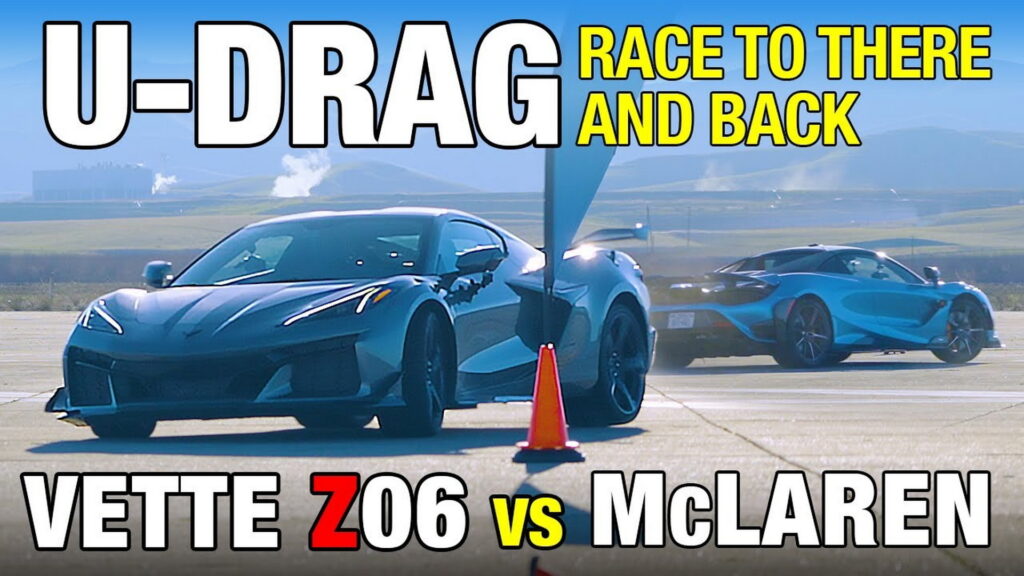The 2023 Chevrolet Corvette Z06 is often called a budget supercar and that’s fine because it’s incredibly fast while not costing a quarter of a million dollars. In fact, it’s quicker around a track than something like the Lamborghini Huracan Technica. But what happens when it goes up against a flagship supercar like the McLaren 765LT?
The race we have here is what Edmunds is calling the U-Drag Race. The two cars start from a dead stop, race down a quarter of a mile and then have to make a 180-degree turn before heading back to the original start line. It’s a great test because it considers all-out acceleration, braking, turning, and how well a car can exit a corner with speed.
In the case of these two, it’s a great comparison between just how much more extreme a supercar can be when matched up against a high-end sports car. The Corvette makes 670 hp (499 kW) and weighs 3,681 pounds (1,669 kg) while the 765LT develops 755 hp (563 kW) and weighs just 3,060 pounds (1,387 kg).
Read: The Top 5 Most Overrated New Sports Cars According To You
The first few seconds of the first race between these two offers a glimmer of hope for the Chevy as it rockets out to a lead. Far before the halfway mark of the track the McLaren comes around though and it doesn’t let up. As the two cars exit the braking zone it’s clear that the Corvette isn’t going to catch the British supercar and the times back that up.
The Corvette does the deed in 31.6 seconds while the McLaren needs just 30 seconds flat. Race two goes largely the same way but this time the 765 LT gets a better launch. In fact, it also manages a better turn at the big end. As a result, it goes even faster with a total time of 29.6 seconds. The Corvette actually loses a bit of ground and finishes in 32.1 seconds.
There’s a huge gap in price between these two cars. The Corvette certainly provides an incredible amount of performance for the price, but all of the extra cash ones pay for something like the 765LT gets them the assurance that it can make even incredibly fast cars look slow by comparison.




